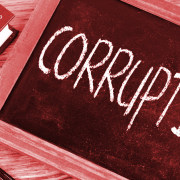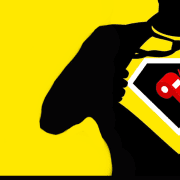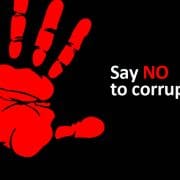|
Getting your Trinity Audio player ready...
|
 Corruption Watch is two years old. In this period, spiralling corruption has become the most intensely discussed topic on the South African public agenda. It’s widely held to be a significant contributor to poverty and unemployment and to the service delivery protests that are rocking the country.
Corruption Watch is two years old. In this period, spiralling corruption has become the most intensely discussed topic on the South African public agenda. It’s widely held to be a significant contributor to poverty and unemployment and to the service delivery protests that are rocking the country.
South Africans will expect corruption to feature in Thursday’s State of the Nation address. But this expectation will be overladen with a heavy dose of cynicism. It’s become mandatory for elected officials – from the president down to the mayor of the most humble village – to sprinkle their public addresses with strident denunciations of corruption and promises to combat it. But little seems to come of these undertakings.
More than that, the person delivering the State of the Nation address is himself, and not for the first time, at the centre of what’s widely perceived to be a major instance of corruption and its cover-up. I refer of course to the Nkandla scandal.
This growing distrust in official action is revealed in independent surveys of those who reported corruption to us. In 2012, 68% of the complaints filed with Corruption Watch had been previously submitted to one of other official agency or reporting hotline. In last year’s survey this declined to 53%.
Whereas in 2012, 18% of those reporting to us had also reported to the presidential hotline, last year this had declined to 4%. The stated reason for this decline is that they had found the official channels to be non-responsive and they did not trust them.
The cold and extremely disturbing fact is that the public expects more satisfaction from a young, under-resourced NGO than they do from the myriad public agencies charged with fighting corruption.
Not all doom and gloom
Our experience of the past two years does not entirely bear out this criticism.
There are clearly key government leaders and institutions that are deeply concerned about corruption. The ministers of finance, health and public service and administration stand out.
At lower reaches of the government, we have received encouraging response from institutions that range from the Gauteng Department of Education through to the Mpumalanga Department of Health.
But the sad, if understandable fact, is that those and many instances of genuine concern and determined action are, in the public mind certainly, drowned out by continuing impunity at the highest levels of government and the private sector, and by many examples of endemic corruption in key public sector agencies.
Look no further than the police and the prosecutorial services, both critical institutions charged with fighting corruption.
But our experience also demonstrated that the fight against corruption is very much on. It’s being led by members of the public, increasingly disaffected and determined to hold accountable those responsible for safeguarding and delivering their basic resources and services.
Corruption Watch’s annual report, released last week, reveals that in the course of the past year we have received 2 262 reports from the public alleging corruption. Although the total number of reports received is lower than the level in 2012, the quality of the reports has improved significantly.
While it’s undoubtedly true that on occasion a mistrustful pubis sees corruption where deficient systems and incompetence or even a lack of public funds are to blame, what out reports show is that there’s an increasingly sophisticated understanding of what constitutes corrupt conduct, one that will not be fobbed off by bald denials and empty promises.
Some 66% of the reports we received last year allege corruption in provincial and local government. These tiers of government are responsible for the provision of basic public services – health, education, water and transport.
Many of these reports fingered small town municipalities. The sectors that feature most prominently are school, health services, transport licencing authorities and metro policing.
Corruption is everybody's problem
Those who have deluded themselves that corruption is a pre-occupation of the chattering classes in the leafy suburb should get their heads out of the sand.
It is those who are reliant on public services – low- and middle-income people – who experience the sharp end of corruption and who are willing to do something about it, despite their vulnerability to vindictive local officials and political bosses.
Moreover, random surveys of our reporters undertaken in 2012 and past year show that by far the largest demographic group reporting to us are African males between 30 and 39. A significant proportion of these have tertiary education. More than 60% are employed and at least 50% are in public sector jobs.
It is safe to assume that many are mid- to senior-level public officials.
The truth will out
This should give pause to those many who believe that all senior public officials are corrupt. Our data establishes that those who are most embarrassed by graft in the public sector are the many clean officials who see bent colleagues looting public resources and getting away with it. This should also serve to caution those determined to cover up and deny corruption. The member of the cabinet security cluster nay close ranks around Nkandla; those in high office responsible for covering up the sordid Guptagate episode may scapegoat low-level officials.
But the truth will out, because, as out data confirms, too many decent public officials know the truth, are deeply offended by what they know, and are willing to talk.
We’re determined to ensure that this public voice is heard. We have, with our annual report, launched a highly interactive, innovative online platform – http://corruptionwatchconnected.org/ – which will enable us to build online communities of interest. This week we also launched an app on Mxit called cwconnect, which gives us access to a younger demographic. These platforms will enable the building of focused internet and cellphone-based communities of corruption fighters.
So we don’t think there’s ground for despair. But equally there’s no room for complacency. Our best hope lies in the willingness of the public to take action.
• This article was originally published in The Star.
There’s been a significant increase in reporting corruption, but we all have to watch out for complacency, writes Corruption Watch's executive director David Lewis in an opinion piece published this week in The Star.







